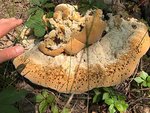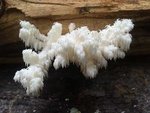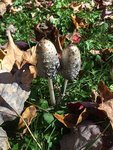 Narrowsburg
NarrowsburgLight Rain Fog/Mist, 43°
Wind: 8.1 mph
 Narrowsburg
NarrowsburgIf you answered affirmatively to the question posed in the title of this column, you are not alone. Frankly, fungi are fascinating, not only for their ecological, medicinal and culinary properties, …
Stay informed about your community and support local independent journalism.
Subscribe to The River Reporter today. click here
This item is available in full to subscribers.
Please log in to continue |



If you answered affirmatively to the question posed in the title of this column, you are not alone. Frankly, fungi are fascinating, not only for their ecological, medicinal and culinary properties, but also for the multitude of interesting forms in which they appear. From puffballs to slime moulds, from boletes to bracket fungi, mushrooms capture the imagination.
Weather conditions in the Upper Delaware River region lately have contributed to a great abundance of mushrooms appearing in our forested landscapes. Some are edible; many are not. Never consume one without positive identification. You might find yourself fighting for your life—or worse.
Fortunately, there are many excellent resources available to guide one’s forays into the world of fungi, such as Gary Lincoff’s “National Audubon Society Field Guide to North American Mushrooms.” Fungi fans will also enjoy “Mycophilia: Revelations from the Weird World of Mushrooms,” by food writer Eugenia Bone, former president of the New York Mycological Society.
We are also lucky to have local experts like Nathaniel Whitmore (www.nathanielwhitmore.com/bio.html) on hand. Founder of the Delaware Highlands Mushroom Society, Whitmore will share his abundant knowledge during the mushroom hike at Lacawac Sanctuary in Lake Ariel, PA from 10 a.m. to 12 noon on September 29. Call 570/689-9494 or email info@lacawac.org to register (members $5, non-members $10). Visit www.lacawac.org/public-programs to see other upcoming programs.
Two other opportunities to increase your expertise are scheduled at the Pocono Environmental Education Center inside the Delaware Water Gap National Recreation Area in Dingmans Ferry, PA. “Fungus Among Us” will be held on September 30 from 10 a.m. to 12 noon and on October 21 from 1 to 3 p.m. Participants will search for fungus and lichen while learning about decomposition and nutrient cycling. Call 570/828-2319 or email peec@peec.org to register for the $5 program.
While parasitic fungi gain sustenance at the expense of their host, they typically target already stressed or diseased trees.
Comments
No comments on this item Please log in to comment by clicking here